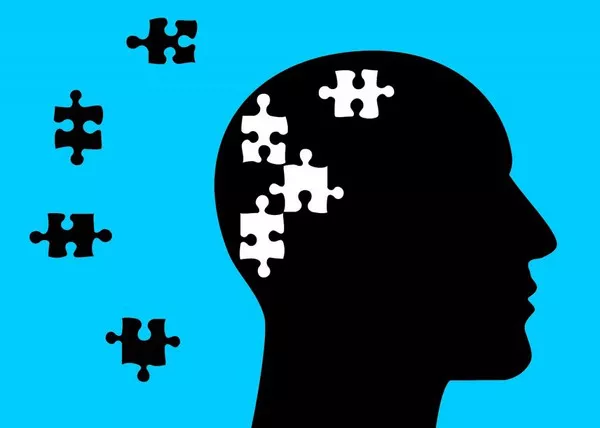Borderline Personality Disorder (BPD) is a complex and challenging mental health condition characterized by a pattern of unstable relationships, self-image, and emotions. People living with BPD often experience intense mood swings, fear of abandonment, impulsivity, and difficulty regulating their emotions. Given the significant impact BPD can have on an individual’s life, many wonder whether it is curable. In this article, we will explore the nature of BPD, its potential for treatment, and the prospects for recovery.
Understanding Borderline Personality Disorder
Borderline Personality Disorder is a personality disorder that typically emerges in early adulthood, though its roots may extend back to adolescence. The hallmark of BPD is emotional dysregulation, which means individuals with this disorder have difficulty managing their emotions effectively. Key features of BPD include:
Intense and Unstable Relationships: People with BPD may form intense and unstable relationships, characterized by alternating idealization and devaluation of others.
Fear of Abandonment: A pervasive fear of abandonment is common in individuals with BPD. This fear can lead to frantic efforts to avoid real or perceived abandonment, even when it is not justified.
Impulsivity: Impulsive behaviors such as reckless driving, substance abuse, binge eating, or self-harming actions are often present in individuals with BPD.
Unstable Self-Image: A sense of self that is unstable, unclear, or shifting is a core feature. Individuals with BPD may struggle to define their identity and values.
Emotional Dysregulation: Emotional responses are intense, rapidly changing, and often disproportionate to the situation. Anger, irritability, sadness, and anxiety can be overwhelming.
Self-Harm and Suicidal Behavior: Many individuals with BPD engage in self-harming behaviors, such as cutting, burning, or hitting themselves. Suicidal ideation and attempts are also more common among those with BPD.
Chronic Feelings of Emptiness: A persistent sense of emptiness and boredom is frequently reported by individuals with BPD.
Difficulty with Anger: People with BPD may have difficulty managing and expressing anger appropriately, often leading to intense and destructive outbursts.
BPD is a challenging condition to live with, and it can affect various aspects of an individual’s life, including relationships, work, and overall well-being.
Is Borderline Personality Disorder Curable?
The question of whether BPD is curable is a complex one. Borderline Personality Disorder is considered a long-term or chronic condition, meaning that it does not typically go away on its own. However, this does not mean that individuals with BPD cannot experience significant improvement and lead fulfilling lives.
Treatment for BPD often focuses on managing and reducing symptoms rather than aiming for a complete cure. The goal is to help individuals gain control over their emotions, improve relationships, and develop healthier coping mechanisms. Treatment approaches can include therapy, medication, and lifestyle changes.
Psychotherapy: Various forms of psychotherapy, such as Dialectical Behavior Therapy (DBT), Cognitive-Behavioral Therapy (CBT), and Schema-Focused Therapy, have shown promise in treating BPD. DBT, in particular, was developed specifically for individuals with BPD and emphasizes emotional regulation, distress tolerance, interpersonal effectiveness, and mindfulness.
Medication: While medication cannot cure BPD, it can help manage specific symptoms, such as depression, anxiety, or mood swings. Antidepressants, mood stabilizers, and antipsychotic medications may be prescribed in some cases.
Supportive Services: Individuals with BPD may benefit from support services, such as case management, crisis intervention, and support groups. These services can provide valuable assistance in managing the challenges associated with BPD.
Lifestyle Changes: Lifestyle modifications, including regular exercise, a balanced diet, and adequate sleep, can contribute to overall well-being and symptom management.
Family and Peer Support: Involving family members and close friends in the treatment process can provide crucial support for individuals with BPD.
The Prospects for Recovery
While BPD is not typically “curable” in the sense of complete and permanent resolution, many individuals with BPD experience substantial improvement in their symptoms and quality of life through treatment and support. The prospects for recovery and a fulfilling life with BPD are influenced by several factors:
Early Intervention: Early diagnosis and intervention can lead to more effective treatment outcomes. Identifying and addressing BPD symptoms in adolescence or early adulthood can help individuals develop healthier coping mechanisms and improve their emotional regulation.
Treatment Adherence: Commitment to treatment and consistent engagement in therapy are critical factors for recovery. Therapy provides individuals with BPD the tools and strategies needed to manage their symptoms effectively.
Supportive Relationships: The presence of supportive and understanding relationships, whether with family, friends, or therapists, can significantly contribute to recovery. A strong support network can provide encouragement and help individuals navigate difficult times.
Self-Awareness: Developing self-awareness and insight into one’s BPD symptoms and triggers is an essential aspect of recovery. Understanding the nature of the disorder and its impact can empower individuals to make positive changes.
Coping Skills: Learning and practicing healthy coping skills, including emotional regulation and distress tolerance, can help individuals manage their symptoms and reduce impulsive behaviors.
Medication Management: For some individuals, medication can be a valuable component of treatment, helping to stabilize mood and alleviate co-occurring conditions.
It’s important to note that the journey to recovery from BPD is unique for each individual. Some people may experience significant improvement and effectively manage their symptoms, while others may continue to struggle with certain aspects of the disorder. However, even individuals with ongoing symptoms can lead fulfilling and meaningful lives with appropriate support and treatment.
Conclusion
Borderline Personality Disorder is a complex and challenging mental health condition characterized by intense emotions, unstable relationships, and impulsive behaviors. While BPD is typically considered a chronic condition, it is not without hope. Treatment approaches, including psychotherapy, medication, and lifestyle changes, can significantly improve an individual’s quality of life and help them gain better control over their symptoms. Recovery from BPD may not mean a complete cure, but it often involves substantial symptom management and the ability to lead a fulfilling life with healthy relationships and emotional well-being. The key is early intervention, adherence to treatment, and the presence of a supportive network of family and friends.


